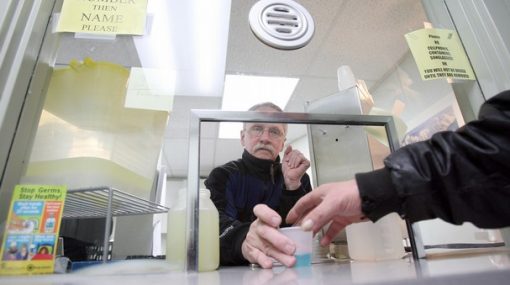Is Methadone Maintenance Just Medication or Is There More?
A lot of people refuse methadone maintenance treatment because they hear the word methadone and they have an instant negative reaction. Unfortunately, methadone carries a stigma (negative association) and when people hear it, they think the worst of it. They think the clinics are dirty and frequented by down and out drug fiends. But, that isn’t the case. They are medical facilities like any other.
It’s important to explore this idea because people who reactively refuse don’t know what they are saying no to. Methadone maintenance is about more than simply dispensing methadone. There are many other services that are also included in the treatment and they actually play a big role in the outcomes of treatment. The following discussion will cover what is included in methadone treatment and help you to make an educated decision about the care you pursue.
What Are the Core Services of Methadone Maintenance Treatment?
There are minimum services outlined by federal regulations, but programs can vary quite a bit from state to state. And factors like accreditation, and local issues can also impact what is offered. A panel of experts recommend that the minimum services offered should include:

MMT is combined with counseling to enhance your recovery outcomes.
- Medication dispensing
- Comprehensive psychosocial assessment
- Drug tests
- Initial and yearly medical assessment
- Hepatitis C and HIV testing, counseling, education, and referrals for treatment
- Diagnosis of co-occurring disorders and neuropsychological issues
- Evaluations of family problems and interventions to address them
- Referrals for additional services
- Counseling to stop substance abuse and to manage cravings and urges
Every one of these services plays a role in the overall outcome, but counseling is particularly important.
What Happens in Counseling?
A consensus panel determined counseling as part of medication-assisted treatment should focus on:
- Offering motivational improvement for positive changes in lifestyle
- Offering guidance and support, especially when it comes to eliminating substance abuse
- Identifying and removing obstacles to full treatment retention and participation
- Assisting patients to follow opiate treatment rules
- Monitoring difficult behaviors
- Identifying issues that require extended services and referring patients to those services
Counseling can take many forms and may be individual, group or both. Typically, the sessions will follow a cognitive-behavioral model, which focuses on increasing a patient’s participation in treatment, changing their behaviors, and addressing their emotional, social, and behavioral problems, as well as co-occurring issues.
Are Counseling Interventions Effective?
Most people want the methadone part of methadone maintenance treatment and have less of an interest in attending counseling sessions. In fact, a lot of patients miss many of these sessions, which results in less effective treatment or premature exit from treatment, something that contributes to misconceptions about whether or not medication-assisted treatment works.
It’s incredibly important that programs retain patients. According to the Substance Abuse and Mental Health Services Administration, length of retention is a critical gauge of treatment outcomes. All patients benefit from the treatment, but those who remain for a year or more use substances less, are more likely to participate in constructive activities, and avoid criminal activity when compared to patients who leave early.
A study published in the Journal of the American Medical Association examined whether or not the addition of counseling, psychosocial services, and medical care improved the effectiveness of methadone treatment. It determined counseling was not only important to outcomes of treatment but that it improved them. Patients who received counseling and medical services had more consecutive weeks of negative urine tests than did patients without counseling. In fact, patients without counseling did so badly that it was added to the treatment regimen and those patients improved rapidly.
If you would like to take advantage of the many benefits offered by methadone maintenance treatment, don’t fall into the trap of assuming it is all about giving you medication to fix things. It’s not. And don’t get scared because you hear the word methadone. The treatment works. Instead, do some research so you feel confident in your decision.
For more information about methadone safety and to find out if medication-assisted treatment is right for you, call 800-994-1867Who Answers? today.
